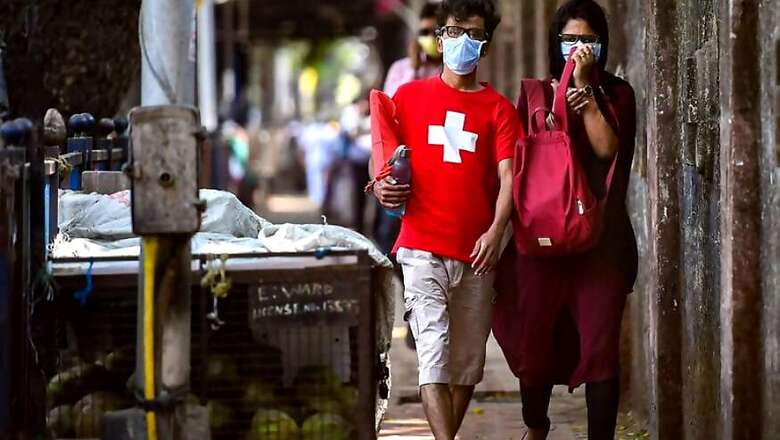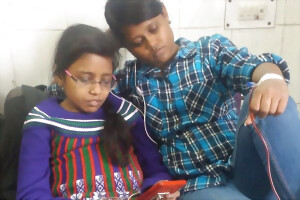
views
New Delhi: The nationwide lockdown to stem the COVID-19 outbreak has spelt trouble for thousands of thalassaemia patients in the country who need regular blood transfusion and a special therapy to survive.
“I need two units of blood every two weeks. I get it done in Sanjay Gandhi PGI in Lucknow. Since there is lockdown everywhere, it is not possible to travel and nearly impossible to get (blood) donors,” says 24-year-old Snigdha Chatterjee, who is a scholar at Gorakhpur University.
Apart from blood transfusion, thalassaemia patients like Snigdha have to regularly undergo iron chelation to extract the extra iron deposited in the body.
Thalassaemia is a genetic blood disorder in which the body makes an abnormal form of haemoglobin.
This causes excessive destruction of red blood cells, which leads to anaemia – a condition where the human body doesn’t have enough normal, healthy red blood cells.
Kurshid Khan, 11, another thalassaemia patient who lives in a village near Basti in Uttar Pradesh, is also fighting for his life as he cannot travel to hospital due to the lockdown and poor economic condition.
“Lucknow is almost 200 kilometres from our village. How will I take my son to hospital in these conditions? I don’t know whether he will survive if this lockdown continues,” Khurshid’s mother Shahnaz told News 18.
India is considered the thalassaemia capital of the world. Every year, more than ten thousand children are born with ‘thalassaemia major’ – the worst form of this condition.
The disease is transferred from parents to the child. If one of the parents is a carrier of thalassaemia, the child may inherit ‘thalassemia minor’ where symptoms may not show and the patient can lead a normal life. But if both parents are carriers of this disease, there is a greater chance of inheriting the more serious form.

Snigdha (right) with Dhiksha (left) looking into a phone in the hospital.
According to data available, there are more than 3.5 crore carriers of thalassaemia in our country. It is estimated that every month almost one lakh patients undergo blood transfusion to battle this ailment and more than two lakh units of blood is required in India for the treatment of thalassaemia patients.
Government medical facilities are very limited for regular treatment of this condition. More than 90% of treatment expenses are out of pocket and a patient spends around one lakh rupees every year for survival.
“I don't have enough money to meet my daily expenses. So, I wanted to take him (Khurshid) to Mumbai as one of my relatives had promised cheaper treatment there. But now trains are also not running and I am stuck here,” Shahnaz said.
Sanjay Gandhi PGI of Lucknow receives patients not only from Uttar Pradesh but also from several other parts of India.“I am a regular visitor at SGPGI. Besides Uttar Pradesh, patients come from other states like Bihar and Jharkhand as well. Many of these patients are very poor and cannot even bear the expenditure of travel,” Snigdha told News 18.
As the country is under lockdown for at least three weeks to prevent the spread of the novel coronavirus, the thalassaemia patients are not getting blood donors and it will be a difficult period for them. Blood donation camps are not being organised and there is hardly any available in blood banks.
The Indian Red Cross Society (IRCS) tweeted last week, “To contain the spread of COVID2019, mass gatherings have been cancelled. Keeping in line with this directive, IRCS NHQ has cancelled its scheduled blood donation camps, leading to an acute shortage of blood at IRCS NHQ blood bank.”
In another tweet, IRCS wrote, “Thalassemic children, regular recipients of fresh blood at our blood bank are the worst affected. We request you to come forward & join hands with us in this critical time of need & give them 'The Gift of Life'! Donate blood today at IRCS NHQ, between 10 am to 6 pm. COVID2019.”
The relatives of patients have started a campaign over social media to solicit help and spread awareness.
“We are trying to flag the issue through social media posts and create awareness among people so that they come out for help and humanitarian agencies take initiative to collect blood by going door to door. There are volunteer donors and I am sure they will come out. The Residents' Welfare Societies (RWAs) can play an important role in this (blood collection) regard,” says Pankaj Mishra, uncle of Snigdha.




















Comments
0 comment